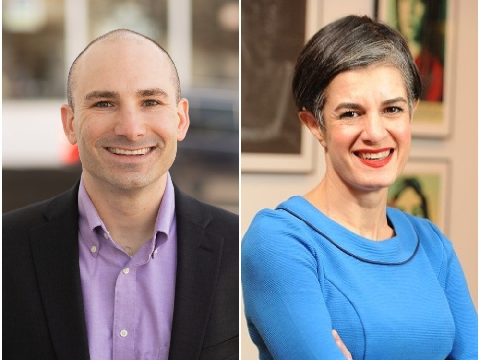When it comes to the First Amendment, the people of Virginia should be proud of their laws, and the nation should take notice as to why. Despite the efforts of those who advocate for limiting and restricting political speech, Virginia has long acted in the people’s interest by allowing individuals and groups to make unlimited contributions to the candidates of their choice.
In most other states and on the federal level, lawmakers have imposed contribution limits that cap the ability to support candidates, making it harder to fund campaigns and ultimately reducing speech about elections.
While contribution limit advocates claim these restrictions promote equality in elections, they instead disproportionately harm political outsiders and grassroots groups. These lesser-known competitors struggle to compete with well-established opponents. Without the ability to purchase ads and flyers to build name recognition, hire staff, and print campaign signs, grassroots candidates have trouble spreading their message to voters. By contrast, longtime politicians have a major advantage, as they can rely on their political network and pre-existing name recognition to carry them through the early stages of a campaign.
If politicians are genuine when they call for fair and competitive elections, they should turn to the Virginia model to achieve their goal. As the Institute for Free Speech noted in our Free Speech Index, Virginia is one of five states (along with Alabama, Nebraska, Oregon, and Utah) with no contribution limits whatsoever on giving to candidates. (In total, eleven states don’t have any limits on individual giving to candidates.)
In fact, the ability to promote greater diversity and competition in elections through political giving was just seen in recent prosecutors’ races in Virginia’s Arlington and Fairfax counties. Both contests showcase how unlimited contributions can promote emerging viewpoints and improve competition in elections. Thanks in part to large donations from Justice & Public Safety PAC, a group which seeks to assist “reform-minded prosecutors,” challengers Parisa Dehghani-Tafti in Arlington County and Steve Descano in Fairfax, were able to challenge – and ultimately unseat – their county’s incumbent Commonwealth’s Attorney.
The defeat of Fairfax County’s “35-year courtroom veteran” led to the scrutiny of Justice & Public Safety PAC and its “megadonor” George Soros. Some also called for new restrictions on the ability to financially support candidates in the state. But a fair election is one everyone can enter, where candidates and supporters are free to promote their views to voters. Thanks to Descano’s ability to fundraise freely, he was able to spread his progressive message and reach as many voters as possible.
Regardless, a candidate’s spending will only go as far as their message takes them. In a Letter to the Editor to The Washington Post, a Descano supporter spoke out against the idea that campaign ads swung the vote against the incumbent, Mr. Morrogh:
“I chose to vote against Mr. Morrogh because he supports the death penalty and opposed then-Gov. Terry McAuliffe’s actions to restore voting rights to felons who had served their time and paid their debt to society. I was alerted to these positions not by political advertisements but, rather ironically, by The Post’s May 12 endorsement of Mr. Morrogh.”
Both Arlington County and Fairfax County had unusually competitive races for Commonwealth’s Attorney. The freedom that Virginia law grants to donors allowed Descano and Dehghani-Tafti to tap into a growing criminal justice reform movement and reach voters who might otherwise skip voting in a June primary for state and local offices.
Descano and Dehghani-Tafti’s victories are not the only instances in Virginia where an unlikely progressive challenger, funded in part by large donations, defeated an incumbent.
In 2017, Danica Roem defeated Republican Robert G. Marshall for a State House seat in Prince William County, a heavily-populated area located fairly close to Washington, D.C. Marshall was a 13-term incumbent and the author of a controversial “bathroom bill” that died in committee. Roem, a member of the LGBTQ community, received significant backing and donations from LGBTQ rights groups. At the time, IFS Communications Director Luke Wachob noted in The Washington Post that Roem would have been required to forfeit about $500,000, or two-thirds of her total fundraising, if Virginia had contribution limits on par with other states.
Thanks in part to the freedom to accept support without limit, Roem became the first openly transgender lawmaker in the nation. The same freedom helped Descano and Dehghani-Tafti to enter and win an election where incumbents often cruise to victory.
While politicians call for more restrictions on political giving, their constituents should first consider how barriers to entry favor incumbents. Contribution limits force lesser-known candidates to fight that much harder to gain voter attention. With a name that is familiar to voters, a database of previous supporters, and the connections and know-how to navigate the complicated world of politics, career politicians often run a smooth race to the finish line. New challengers without political experience need the ability to fundraise freely in order to compete fairly. More states should follow in Virginia’s footsteps.













